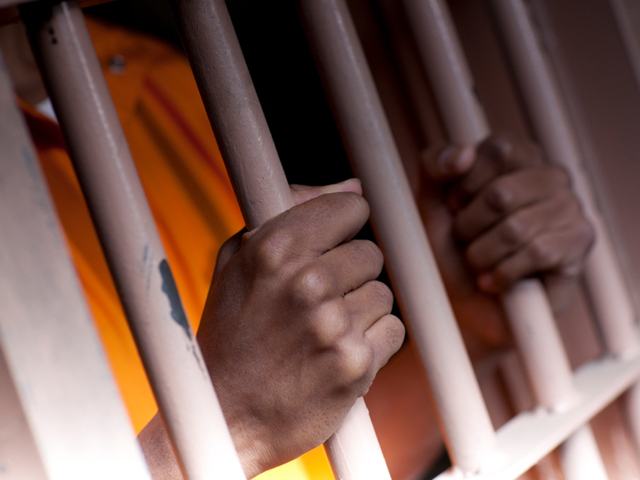My life prior to being incarcerated was no different than that of any other typical American citizen. It was unremarkable in every way. And just like most in this country, I never gave time out of my day to ponder the lives of those incarcerated, and the prolonged hardships placed upon them and their families.
In hindsight, I wish I had paid greater attention to their plight. The old adage, the devil is in the details, couldn’t be more appropriate. If you’ve never spent time locked up, there’s nothing to compare it to that’d allow you to be empathetic to a prisoner’s demise. Sadly, I don’t know what’s worse, the illicit behavior conducted by those entrusted with our safety and care, or the public’s ignorance and lack of compassion for those incarcerated, the majority whom will one day reenter society.
As much as society wants to disassociate themselves from prisons and their mere existence, they’re largely responsible for its expansion. The mass incarceration epidemic in America has lost its moral compass. Some would say it never had moral ethics from its inception, thus, it’s lost nothing and only continues the degradation of civil liberties for all humanity. It’s no longer about the people confined but the commodity procured.
The Millennial generation have an opportunity to do something astounding. Where other generations have fallen short, not just in apathy but in what’s just and appropriate. Now comes a generation willing to ask questions, to question authority, and I pray correct the corrosive blight prisons have become.
The truth is prisons are merely a microcosm of society at-large. There are clusters of communities within prison. The poor, middle class , and the penitentiary rich. Within those clusters you have the underprivileged, the illiterate, gangs, the educated, and the privileged. Sound Familiar? No different than in your own neighborhoods, bad things can and do happen to good people. The distinction in disparity of justice should be troubling to anyone with a pulse. If you commit murder, you’re sentenced to decades, if not life imprisonment. If you commit the same act in prison, you’re punished for a couple months, maybe years and then placed back into your enclave. How does that resonate with the civilly mindful?
The judicial branch of our government has become so desensitized to the exorbitant, lights out years being imposed on the convicted. The rationale behind their inordinate prison sentences was intended to be a deterrent, but crime, for its multitude of reasons, persists. Human behavior is very complex. The complexity is exacerbated by social, psychological, and environmental factors. The imprudent action to impugn humanities frailties by imposing draconian sentences resolves nothing. It’s tantamount to placing a bandaid over a geyser and believing you can contain that which is uncontrollable.
Certainly there are social norms, civil discourse, and proper etiquette but what happens when that expected behavior turns to civil disobedience? Nothing until civility turns to criminal intent. What does it all have in common?…CHOICE. Freewill is innately part of our DNA. While we’re encouraged to conform to cultural expectations, every person is one misstep away from being in here with me.
The government and society want to brand prisoners as incorrigible miscreants incapable of change. I have witnessed the polar opposite. The fact is every offender is someone’s father, mother, brother, sister, nephew, niece, cousin, aunt or uncle, loved by their family and not perceived as an animal but as a lost loved one. Always be cognizant of the fact that you, yourself, are but one small mistake from being branded like myself. If civilization would acknowledge its own fallibility, insurrectionists would be marginalized and fundamental change would no longer seem insurmountable.
There’s this misconception that a zebra can’t change its stripes. I’d be remissed if I didn’t remind readers that stereotypes are often untrue, or at the very least only partly true. Rigidity, intolerance, hate, all contribute to societal fallacies. I believe introspection is integral to changing course.
I can attest to the fact that life in Virginia prisons doesn’t consist of daily gratuitous violence. In fact, I’d suggest the opposite is true. Most days enthrall surviving the mundane boring lifestyle we’re forced to endure. Everyday resembles ‘Ground Hog Day’, just like the movie. Everything is so regimented that changes are seldom.
The enormity of the boredom is what often compels one to act out. If greater emphasis would be placed on programmatic activities, it might eliminate the idle hands in the the devil’s playground. Another issue is the scarcity of jobs. Those fortunate enough to land one only get paid pennies on the dollar for their sweat equity.
There’s no emphasis on rehabilitation and most prison staff are apathetic to our situation. They’re trained to take our concerns with skepticism because allegedly all prisoners are master manipulators. The reality is if we treated our prisoners more humanely, few would resort to employing such tactics. It has been my experience that most offenders simply want to be treated with dignity. Respect is a two way street and earned over time.
There’s no quick fix that’ll bring about proper reparations for mass incarceration in this country but regardless of the difficulties that lie ahead, change is inevitable. There are far more decent people locked up than irredeemable. Let’s bring an end to mass incarceration and accept the fact that it’s the prosecutor’s political office at stake if they don’t maintain a high conviction rate, no matter what the cost and to whom.
John E. Hamilton, #1442949
Virginia Dept. of Corrections
Nottoway Correctional Center
2892 Schutt Rd / P.O. Box 488
Burkeville VA 23922



You have to admit that there is a certain irony and someone who is been convicted of a crime and sent to prison indicting those who responsible for their care.
I do understand your position enough to understand your commentary,though.
While I do not necessarily believe in the penitentiary system as a place where those who have done something wrong in society to be locked up go to “repent” their sends and that’s be rehabilitated as a whole solution to the situation, I never the less think that there is a certain segment of the general population who can be rehabilitated, Who can develop a certain sense of reflection, how they got there, and general repentant kind of attitudes.
I do believe though that there is a difference between someone who is naturally a criminal, and someone who found themselves doing a criminal act.
But that’s just me; I do not wire try not to conceive of the group, of generalizations. Personally I can only consider individual.
If you’re so inclined to intellectual pursuits perhaps, if you have not already, read an essay by Michel Foucault about the penitentiary system.
You might find a new way to look at the situation that you’re in, and perhaps a new way to affect it.
Thx.
Sorry about the voice dictation auto correct.
This is really well written and you make a lot of really important points. The evidence shows that harsher sentences do not act as deterrents…because the issue is not simply free will (although that is the ultimate trigger) The issues behind offending are where we need to look.
Yes, we must do something to change the mass incarceration of people. It just makes no sense, except for political gain. It bothers me a lot.
The justice system is badly in need of an overhaul.You are absolutely right, treating people with dignity, providing opportunities for meaningful activity and learning would go a long way towards reformation.
I don’t know who that landzek fellow is, but he has certainly not spent much time behind bars.
I only stayed 90 days in the Hampton City jail awaiting arraignment. Had a conviction come, perhaps I’d be right there with you.
Being one of only two white guys there, I assure it was no sunday picnic. So here’s the skinny.
Deviance. And just because we are not always caught performing our deviances, we frown upon those that are.
I actually believe everyone is a deviant in one manner or another, therefore all are short of glory in the eyes of God.
That said, with you holding down one of the bunks, someone else feels more secure that they won’t have to be there. As long as the prisons stay full, fewer and fewer convictions are required. And I’ve already told you guys that we have more prisons than colleges.
John, there is no getting around that you’ve been convicted, and if it was a felony conviction, you are worse off than half the people incarcerated. But help comes to those who seek it. You are quite literate, this being the second posting of yours I think I’ve read.
Use that intelligence and literacy to gain your pardon. Study the precedences of similar cases as yours, and the sentences received.
In only the 90 days I spent in VA, I had two convictions overturned, and two reduced sentences. Not bad for 28 appeal letters.
I only had to kill one person, and someone killed someone else for me. All in all, a fair trade.
As always, I wish for you the best. However, don’t put your faith in the millennials, as they are deviants themselves. Put your faith in you.
Very good post, and important blog in general. Prisoners are humans, and often what separates us from them is circumstantial. If I grew up in the same environment that many of them have, would I have had the courage to resist crime? So many people grow up without any support system. They lack opportunity, the social and economic pressure around them try to force them into crime, and they are never given a sense of worth with which to resist these pressures. Hell, some of them are innocent too! It is so important to take care of the victims of crime, and not belittle the harm that was done. It is also important as a society to stop using others mistakes as an excuse for our own indifference and lack of mercy. To John and any other prisoners represented by this blog, just know that there are people on the outside who believe in you. Your voice matters!
Well rounded post and that inspired balanced comments, thanks John. You accept that there has to be social norm – there will always be a threshold where some citizens of any society overstep the mark into destruction. Maturing, youth especially, is about learning where the social marks are and how they got there. That’s the crux.
I think you do have a balanced approach; If more people could believe more in the fair-mindedness of our institutions, in their unbiased rationale, then those same people could have more faith in the social standards that we are all supposed to uphold.
Personally, I have no such faith, The Establishment instinctively looks after itself and has found the optimum price to buy its mostly indifferent citizens, its electorate: $, £. Whether they do so in ignorance or vindictiveness is the debate? It is always willing to spend megabucks on correctional institutions, law enforcement, military empowerment and secrecy than it is on opening minds. You and this blogsite are on the right side of the divide.
All power to your pen; go to it.
Agreed again and again. Thoughtful, eloquent, and moving post, and an insightful reply. Well done!
Great post. Reminiscent of the likes of Dostoevsky’s autobiographical accounts. The American justice system has largely strayed from its basic principles: swift punishment in proportion to the crime. Justice is neither swift nor proportionate. Make no mistake, I don’t so much sympathize with the incarcerated, as I am concerned for the well being of society at large. Recidivism rates alone are proof enough that we as a people (free and incarcerated) should demand criminal justice reform.